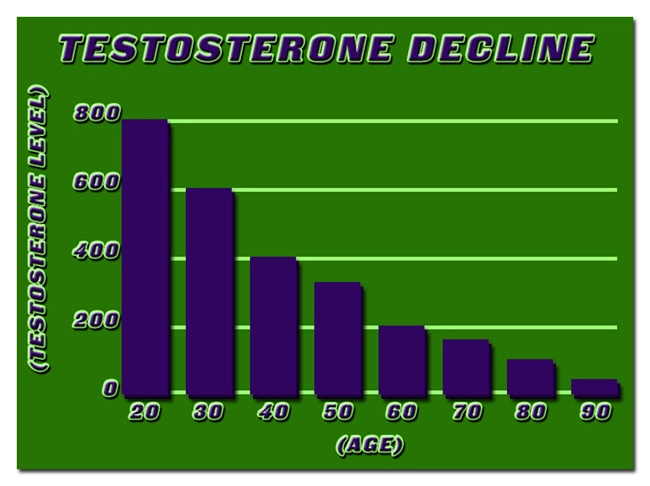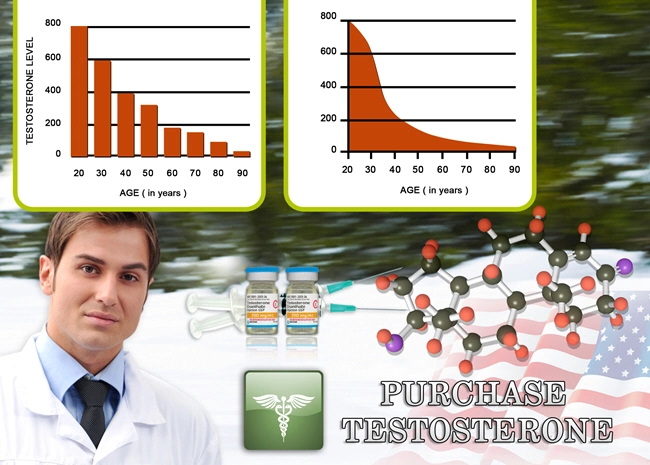
Introduction
Testosterone, a critical hormone in men, plays a pivotal role in regulating various bodily functions, including muscle mass, bone density, and libido. Recent research has begun to uncover a fascinating link between gastrointestinal health and testosterone levels, particularly in American males. This article delves into how the gut microbiome can impact testosterone production and what this means for men dealing with low testosterone levels.
The Gut Microbiome and Hormonal Balance
The gut microbiome, a complex community of microorganisms residing in the digestive tract, is increasingly recognized for its role in overall health, including hormonal regulation. Studies have shown that the gut microbiome can influence the endocrine system, which is responsible for hormone production and regulation. Specifically, certain gut bacteria can affect the metabolism of androgens, including testosterone.
Research Findings on Gut Health and Testosterone
Emerging research has highlighted a potential correlation between gut health and testosterone levels. A study published in the *Journal of Clinical Endocrinology & Metabolism* found that men with a more diverse gut microbiome had higher levels of testosterone. Conversely, those with lower microbial diversity exhibited reduced testosterone levels. This suggests that a healthy gut microbiome may support optimal testosterone production.
Mechanisms Linking Gut Health to Testosterone
Several mechanisms may explain how gut health impacts testosterone levels. One key pathway involves the enterohepatic circulation, where gut bacteria can influence the reabsorption of hormones. Additionally, gut bacteria can produce short-chain fatty acids (SCFAs), which have been shown to affect hormone levels. SCFAs can modulate inflammation and insulin sensitivity, both of which are linked to testosterone production.
Dietary Factors and Gut Health
Diet plays a crucial role in maintaining a healthy gut microbiome, which in turn can influence testosterone levels. Diets rich in fiber, such as those including fruits, vegetables, and whole grains, promote a diverse and healthy gut microbiome. Conversely, diets high in processed foods and sugars can lead to an imbalance in gut bacteria, potentially lowering testosterone levels.
Probiotics and Prebiotics: A Potential Solution
Probiotics and prebiotics are gaining attention for their potential to improve gut health and, by extension, testosterone levels. Probiotics are live beneficial bacteria that can help restore the balance of the gut microbiome. Prebiotics, on the other hand, are non-digestible fibers that serve as food for these beneficial bacteria. Incorporating probiotics and prebiotics into the diet may help enhance gut health and support optimal testosterone production.
Clinical Implications for Men with Low Testosterone
For American men struggling with low testosterone, understanding the link between gut health and hormone levels can be empowering. By focusing on improving gut health through diet and possibly supplementation, men may be able to naturally boost their testosterone levels. It is essential, however, for individuals to consult with healthcare providers before making significant changes to their diet or starting new supplements.
Conclusion
The relationship between gastrointestinal health and testosterone levels in American males is a burgeoning field of research with significant implications. By fostering a healthy gut microbiome through diet and lifestyle choices, men may be able to support their testosterone levels and overall well-being. As research continues to evolve, the gut-testosterone connection offers a promising avenue for addressing low testosterone and improving men's health.
References
- *Journal of Clinical Endocrinology & Metabolism*. "Gut Microbiome Diversity and Testosterone Levels in Men."
- Additional relevant studies and sources to be included as needed.
Contact Us Today For A Free Consultation
Dear Patient,
Once you have completing the above contact form, for security purposes and confirmation, please confirm your information by calling us.
Please call now: 1-800-380-5339.
Welcoming You To Our Clinic, Professor Tom Henderson.

- Environmental Toxins Linked to Low Testosterone in American Men: Impacts and Mitigation Strategies [Last Updated On: February 28th, 2025] [Originally Added On: February 28th, 2025]
- Low Testosterone: Symptoms, Risks, and Comprehensive Management Strategies for American Males [Last Updated On: March 17th, 2025] [Originally Added On: March 17th, 2025]
- Alcohol's Impact on Testosterone: Risks and Strategies for American Men [Last Updated On: March 17th, 2025] [Originally Added On: March 17th, 2025]
- Low Testosterone's Impact on Muscle Mass and Strength in American Males [Last Updated On: March 17th, 2025] [Originally Added On: March 17th, 2025]
- Chronic Illnesses and Low Testosterone: Impacts and Management in American Males [Last Updated On: March 19th, 2025] [Originally Added On: March 19th, 2025]
- Low Testosterone's Impact on Cognitive Function in American Men: Risks and Interventions [Last Updated On: March 19th, 2025] [Originally Added On: March 19th, 2025]
- Low Testosterone in American Men: Impact on Energy and Treatment Options [Last Updated On: March 19th, 2025] [Originally Added On: March 19th, 2025]
- Vitamin D's Role in Boosting Testosterone Levels in American Men: A Comprehensive Overview [Last Updated On: March 20th, 2025] [Originally Added On: March 20th, 2025]
- Economic Burden of Low Testosterone on American Men's Health and Healthcare System [Last Updated On: March 20th, 2025] [Originally Added On: March 20th, 2025]
- Low Testosterone and Mood Disorders: Impacts and Management for American Men [Last Updated On: March 21st, 2025] [Originally Added On: March 21st, 2025]
- Weight Loss Boosts Testosterone: Strategies for American Males with Low T [Last Updated On: March 21st, 2025] [Originally Added On: March 21st, 2025]
- Low Testosterone and Diabetes: Interlinked Challenges and Management Strategies for Men's Health [Last Updated On: March 21st, 2025] [Originally Added On: March 21st, 2025]
- Low Testosterone Effects on Skin Health in American Men: Causes and Solutions [Last Updated On: March 22nd, 2025] [Originally Added On: March 22nd, 2025]
- Managing Low Testosterone in Aging American Men: Symptoms, Treatments, and Holistic Approaches [Last Updated On: March 22nd, 2025] [Originally Added On: March 22nd, 2025]
- Low Testosterone and Osteoporosis: Risks, Diagnosis, and Management in American Males [Last Updated On: March 22nd, 2025] [Originally Added On: March 22nd, 2025]
- Boosting Testosterone in American Men: The Power of Physical Activity and Lifestyle [Last Updated On: March 23rd, 2025] [Originally Added On: March 23rd, 2025]
- Low Testosterone and Prostate Health: Understanding Risks and Management Strategies [Last Updated On: March 23rd, 2025] [Originally Added On: March 23rd, 2025]
- Low Testosterone and Hair Loss: Mechanisms and Management in American Males [Last Updated On: March 23rd, 2025] [Originally Added On: March 23rd, 2025]
- Low Testosterone's Impact on Immune Function in American Males: Insights and Strategies [Last Updated On: March 23rd, 2025] [Originally Added On: March 23rd, 2025]
- Low Testosterone: Symptoms, Impact, and Treatment Options for American Men [Last Updated On: March 23rd, 2025] [Originally Added On: March 23rd, 2025]
- Medications Impacting Testosterone: What American Men Need to Know and Manage [Last Updated On: March 24th, 2025] [Originally Added On: March 24th, 2025]
- Sleep Apnea's Impact on Testosterone Levels in American Males: A Comprehensive Analysis [Last Updated On: March 24th, 2025] [Originally Added On: March 24th, 2025]
- Low Testosterone's Impact on American Males' Body Composition and Health [Last Updated On: March 24th, 2025] [Originally Added On: March 24th, 2025]
- Low Testosterone and Heart Disease Risk in American Men: Current Insights and Interventions [Last Updated On: March 24th, 2025] [Originally Added On: March 24th, 2025]
- Chronic Pain and Low Testosterone: A Critical Health Issue for American Males [Last Updated On: March 24th, 2025] [Originally Added On: March 24th, 2025]
- Herbal Supplements for Low Testosterone: Benefits and Considerations for American Men [Last Updated On: March 24th, 2025] [Originally Added On: March 24th, 2025]
- Environmental Estrogens and Declining Testosterone in American Males: A Public Health Concern [Last Updated On: March 25th, 2025] [Originally Added On: March 25th, 2025]
- Low Testosterone's Impact on Emotional Wellbeing in American Men: Insights and Guidance [Last Updated On: March 25th, 2025] [Originally Added On: March 25th, 2025]
- Dietary Impact on Testosterone Levels in American Men: Insights and Recommendations [Last Updated On: March 25th, 2025] [Originally Added On: March 25th, 2025]
- Managing Low Testosterone in Aging Men: Symptoms, Treatments, and Lifestyle Strategies [Last Updated On: March 25th, 2025] [Originally Added On: March 25th, 2025]
- Zinc's Role in Boosting Testosterone Levels in Aging American Men [Last Updated On: March 25th, 2025] [Originally Added On: March 25th, 2025]
- Chronic Inflammation's Impact on Testosterone Levels in American Males [Last Updated On: March 25th, 2025] [Originally Added On: March 25th, 2025]
- Testosterone's Role in Male Libido: Understanding, Diagnosing, and Treating Low Levels [Last Updated On: March 25th, 2025] [Originally Added On: March 25th, 2025]
- Low Testosterone and Depression in American Men: Links, Impacts, and Management Strategies [Last Updated On: March 25th, 2025] [Originally Added On: March 25th, 2025]
- Low Testosterone and Metabolic Syndrome: Risks and Strategies for American Men [Last Updated On: March 26th, 2025] [Originally Added On: March 26th, 2025]
- Genetic Factors in Low Testosterone Among American Males: Insights and Implications [Last Updated On: March 26th, 2025] [Originally Added On: March 26th, 2025]
- Smoking's Impact on Testosterone Levels in American Men: A Comprehensive Analysis [Last Updated On: March 26th, 2025] [Originally Added On: March 26th, 2025]
- Low Testosterone and Thyroid Disorders: Exploring Risks and Treatment in American Men [Last Updated On: March 26th, 2025] [Originally Added On: March 26th, 2025]
- Low Testosterone and Anemia: Impacts and Management in American Men [Last Updated On: March 26th, 2025] [Originally Added On: March 26th, 2025]
- Shift Work's Impact on American Men's Testosterone Levels and Health [Last Updated On: March 26th, 2025] [Originally Added On: March 26th, 2025]
- Liver Health and Testosterone: Vital Connections and Management Strategies for American Men [Last Updated On: March 26th, 2025] [Originally Added On: March 26th, 2025]
- Hormonal Imbalance and Low Testosterone: Causes, Symptoms, and Treatment Options for American Males [Last Updated On: March 27th, 2025] [Originally Added On: March 27th, 2025]
- Chronic Stress and Low Testosterone: Impacts and Strategies for American Men [Last Updated On: March 27th, 2025] [Originally Added On: March 27th, 2025]
- Respiratory Health's Impact on Testosterone Levels in American Males: Management Strategies [Last Updated On: March 28th, 2025] [Originally Added On: March 28th, 2025]
- Low Testosterone and Insulin Resistance: A Growing Concern for American Men's Health [Last Updated On: March 28th, 2025] [Originally Added On: March 28th, 2025]
- Low Testosterone Linked to Increased Kidney Disease Risk in American Men [Last Updated On: March 28th, 2025] [Originally Added On: March 28th, 2025]
- Low Testosterone Linked to Increased Autoimmune Disease Risk in American Men [Last Updated On: March 28th, 2025] [Originally Added On: March 28th, 2025]
- Nutritional Deficiencies Impacting Testosterone Levels in American Males: Zinc, Vitamin D, Magnesium [Last Updated On: March 29th, 2025] [Originally Added On: March 29th, 2025]
- Low Testosterone Linked to Neurological Disorders in American Men: Research and Implications [Last Updated On: March 30th, 2025] [Originally Added On: March 30th, 2025]
- Dental Health's Impact on Testosterone Levels in American Males: Emerging Insights [Last Updated On: March 31st, 2025] [Originally Added On: March 31st, 2025]
- Low Testosterone Linked to Dermatological Issues in American Men: Research and Management [Last Updated On: March 31st, 2025] [Originally Added On: March 31st, 2025]
- Low Testosterone Linked to Increased Eye Disorder Risk in American Men [Last Updated On: March 31st, 2025] [Originally Added On: March 31st, 2025]
- Reproductive Health's Impact on Testosterone Levels in American Males: A Comprehensive Analysis [Last Updated On: April 1st, 2025] [Originally Added On: April 1st, 2025]
- Low Testosterone Linked to Musculoskeletal Disorders in American Men: Interventions and Insights [Last Updated On: April 2nd, 2025] [Originally Added On: April 2nd, 2025]
- ENT Health and Testosterone: Managing Conditions to Boost Hormonal Balance in Males [Last Updated On: April 4th, 2025] [Originally Added On: April 4th, 2025]
- Low Testosterone and Urological Health: Risks, Detection, and Management Strategies [Last Updated On: April 5th, 2025] [Originally Added On: April 5th, 2025]
- Low Testosterone Linked to Hematological Risks in American Men: Insights and Management [Last Updated On: April 5th, 2025] [Originally Added On: April 5th, 2025]
- Low Testosterone Linked to Higher Infection Risk in American Men: Research Insights [Last Updated On: April 6th, 2025] [Originally Added On: April 6th, 2025]
- Understanding and Managing Low Testosterone: A Holistic Endocrine Approach [Last Updated On: April 6th, 2025] [Originally Added On: April 6th, 2025]
- Immune System's Role in Testosterone Levels: Impacts and Interventions for American Males [Last Updated On: April 8th, 2025] [Originally Added On: April 8th, 2025]
- Low Testosterone Linked to Increased Psychiatric Risks in American Men: Mechanisms and Implications [Last Updated On: April 9th, 2025] [Originally Added On: April 9th, 2025]
- Low Testosterone and Surgical Risks in American Men: Implications and Recommendations [Last Updated On: April 10th, 2025] [Originally Added On: April 10th, 2025]
- Trauma's Impact on Testosterone Levels in American Males: Clinical Insights and Management [Last Updated On: April 10th, 2025] [Originally Added On: April 10th, 2025]
- Rheumatological Conditions and Low Testosterone: Impacts and Management Strategies [Last Updated On: April 11th, 2025] [Originally Added On: April 11th, 2025]
- Cancer's Impact on Testosterone Levels in American Males: Mechanisms and Management [Last Updated On: April 13th, 2025] [Originally Added On: April 13th, 2025]
- Testosterone Levels and Wound Healing in American Males: Impacts and Management Strategies [Last Updated On: April 14th, 2025] [Originally Added On: April 14th, 2025]
- Low Testosterone and Vascular Disorders: Risks, Mechanisms, and Management in American Men [Last Updated On: April 14th, 2025] [Originally Added On: April 14th, 2025]
- Anesthetics' Impact on Testosterone: Management Strategies for American Males [Last Updated On: April 14th, 2025] [Originally Added On: April 14th, 2025]
- Low Testosterone Linked to Increased Genetic Disorder Risk in American Men [Last Updated On: April 15th, 2025] [Originally Added On: April 15th, 2025]
- Early Life Health Factors Impact Testosterone Levels in American Males [Last Updated On: April 15th, 2025] [Originally Added On: April 15th, 2025]
- Low Testosterone in American Men Linked to Pediatric Disorders in Offspring [Last Updated On: April 16th, 2025] [Originally Added On: April 16th, 2025]
- Low Testosterone and Geriatric Risks in American Men: Detection and Management Strategies [Last Updated On: April 16th, 2025] [Originally Added On: April 16th, 2025]
- Prenatal Health Impacts on Testosterone Levels in American Males: Insights and Management [Last Updated On: April 16th, 2025] [Originally Added On: April 16th, 2025]
- Low Testosterone Linked to Increased Allergic Reactions in American Men: Emerging Insights [Last Updated On: April 17th, 2025] [Originally Added On: April 17th, 2025]
- Low Testosterone Linked to Congenital Disorders in American Men: Research Insights [Last Updated On: April 18th, 2025] [Originally Added On: April 18th, 2025]
- Neonatal Health's Impact on Testosterone Levels in American Males: A Comprehensive Analysis [Last Updated On: April 18th, 2025] [Originally Added On: April 18th, 2025]
- Occupational Health Impacts on Testosterone Levels in American Men: Stress, Work Demands, and Environment [Last Updated On: April 19th, 2025] [Originally Added On: April 19th, 2025]









